 North Shore Plant Club
North Shore Plant Club
- Shop For Plants
- Search Plants
- Resources for Gardeners
- Color Wheel of Plants
- Interactive Landscapes
- Photos of Planters & Hanging Baskets
- December Photos from Our Community
- Botanic Gardens: Chicago & Beyond
- Local Nurseries
- Upcoming Plant Events
- Articles about Plants & Gardening
- Chicagoland Garden Calendar
- Explaining Plant Container Sizes
- Thrillers, Fillers & Spillers
- Join Free!
- Mundelein
Happy Returns Daylily (Hemerocallis 'Happy Returns')
|
|||||
| Deciduous Perennial in the Xanthorrhoeaceae Family | |||||
Buy Happy Returns Daylily | |||||
|
|||||
A compact, re-blooming daylily that produces masses of sunny, lemon-yellow flowers throughout the summer. |
|||||
About DayliliesAh, the old standby, Daylilies! These plants are classic favorites: they are hardy, reliable, profusely-blooming, widely-varied perennials that are (almost) impossible to kill. These plants prefer full sun but can survive in part shade (with fewer blooms). Little known fact: Daylilies aren’t actually lilies at all (though they used to be classified as Liliaceae)! Their blooms are very similar to true lily flowers, but last only a single day before wilting. What they lack in longevity they make up for in numbers: a single Daylily can produce up to 200 blooms a summer! The genus nam, Hemerocallis, is derived from the Greek words hemera– day– and kallos– beauty– referring to the fact that each flower only lasts a day. These plants are available in almost every color, a range of sizes, and staggered bloom times, so it’s quite possible to plant a garden entirely of daylilies and enjoy a huge variety. Hemerocallis’ leaves are long, slender spears that form a mounded shape, from which tall thin stalks sprout and flower. These stalks can be cut to below the foliage after they are done blooming, but this isn’t necessary to promote flowers. Daylilies grow quickly and need to be divided every few years to stay healthy. Old-fashioned orange and yellow daylilies have been hybridized to produce modern daylilies in a rainbow of colors and with flowering times from spring through summer. Plant in full sun to partial shade in well-drained soil high in organic matter. When planting, cover tubers in 1 inch (2.5 cm) of soil; it is not usually necessary to lift and store them for the winter. Propagate plants by division in the fall or spring. These plants are frequently damaged by deer but are highly salt tolerant and easy to grow. They are excellent to plant along banks and slopes and provide a nectar source for butterflies and hummingbirds. |
|||||
Pros
|
|||||
Cons
|
|||||
Plant Data | |||||
| Mature Size | 12 - 18 inches tall. 18 - 24 inches wide. | ||||
| Sun Exposure | Full Sun - Full Sun | ||||
| Moisture Tolerance | Medium : Daylilies prefer moist, well-drained soil. | ||||
| Zones | 3a - 9b (Usually hardy to -40° F) | ||||
| Tags | Attracts Butterflies, Attracts Hummingbirds, Container, Deciduous, Drought Tolerant, Extended Bloom Time, Formal Garden, Fragrant Flowers, Full Sun, Good for Borders, Good for Butterfly Garden, Good for Cottage Garden, Good for Mass Planting, Low Maintenance, Medium, Most Popular, Normal Soil, Perennial, Rabbit Resistant, Reblooms, Semievergreen, Showy Flowers, Tolerant of Moist Soil, Tolerant of Poor Soil, Well-Drained Soil, Woodland Garden | ||||
| Bloom Period | June to August | ||||
| Flower Color | Lemon yellow
|
||||
Most Popular Plants |
|||||
|
"Semievergreen" #11
|
|||||
More Info from Experts |
|||||
Commonly Planted with...Heleniums, Geums, Rudbeckia, Salvia |
|||||
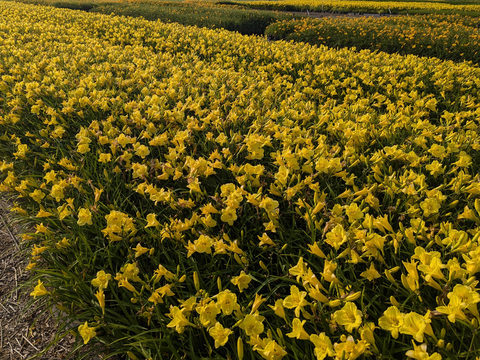
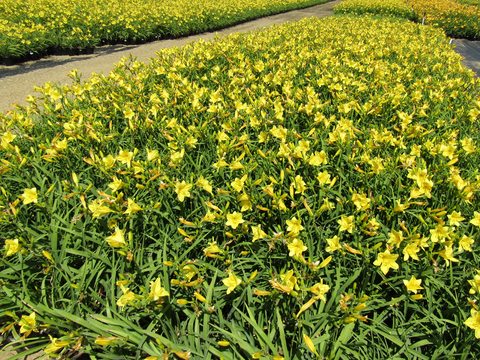

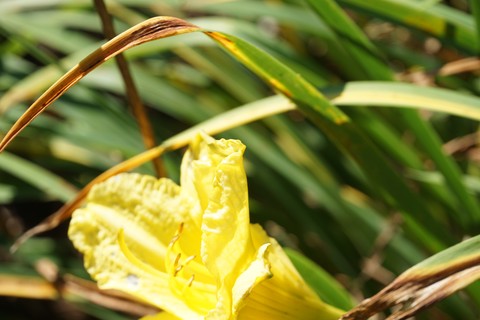
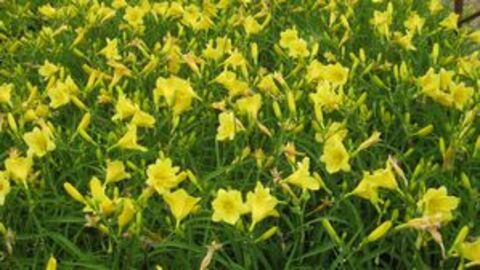
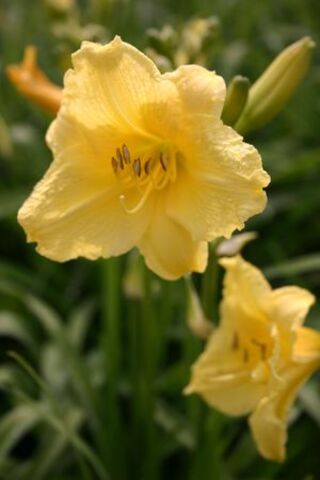
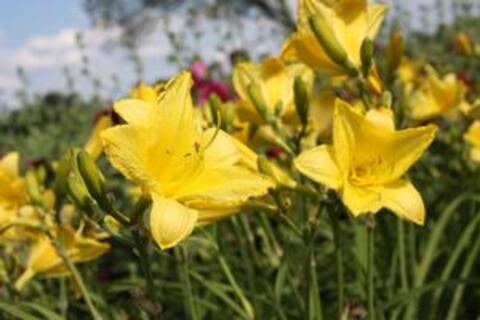

| |
|
Want More
photos of this plant? Try
Google Image Search!
|
|
Pricing and Availability HistoryClick a label to toggle visibility for that size
|
|